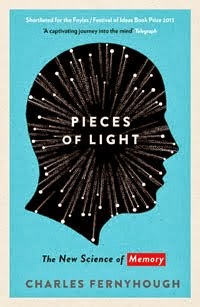The British Psychological Society recently published a set of guidelines on the topic of the law and human memory. The report, authored by a working party chaired by Martin Conway, considers the legal implications of recent findings on memory and forgetting. When children are involved in the legal process, such as in situations involving abuse, cases can hang on the accuracy of a child's memory. And yet those in the legal professions rarely take research on memory into their reckoning, preferring instead to rely on expert witnesses to vouch for the reliability or otherwise of participants' recollections.
There are some thorny problems here, and the report demands to be read and weighed carefully. One point made by the authors stood out for me in particular. On the basis of a great deal of research, the authors explicitly caution against comparisons between human memory and mechanical recording media such as video tapes. But these are errors that are still widespread. The writer Hilary Mantel, for example, in her acclaimed memoir Giving Up The Ghost (Fourth Estate, 2003), puts it like this:
"Though my early memories are patchy, I think they are not, or not entirely a confabulation, and I believe this because of their overwhelming sensory power [...] As I say 'I tasted,' I taste, and as I say 'I heard,' I hear: I am not talking about a Proustian moment, but a Proustian cine-film. Anyone can run these ancient newsreels, with a bit of preparation..."
For Mantel, the vividness of her memories is the guarantee of their accuracy. Decades of research into autobiographical memory show that this is simply wrong. Indeed, the BPS report specifically warns against trusting memories just because they have vivid sensory properties. Memory is too much a tale of storytelling. The only true guide to the accuracy of memories is, ultimately, independent corroboration.
You can download the BPS report here.





No comments:
Post a Comment